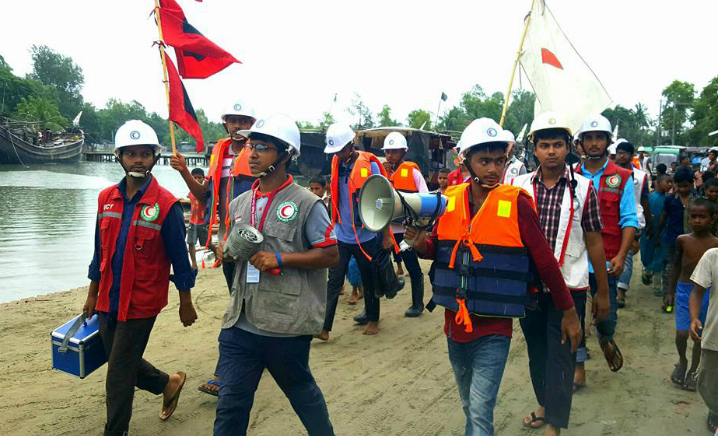The Grand Bargain: working towards localisation
Signed at the World Humanitarian Summit in 2016, the Grand Bargain is focused on reducing the humanitarian financial gap – estimated at almost EUR 13 billion – by improving the efficiency and the delivery of aid. One of its key ambitions is to secure better outcomes for people in need by reinforcing the role played by local and national responders. Local actors have a distinct comparative advantage, as they can ensure early response and access, acceptance, cost effectiveness, and are well placed to link response activities with development by reducing the impact of future crises. Grand Bargain commitments therefore include channeling 25 per cent of global humanitarian funding directly to local actors, and supporting multi-year investment in their institutional capacities, amongst others.
However, technical and legal barriers often prevent organisations and donors from collaborating directly with local actors – a challenge which various donors are taking steps to address. Italy, for instance, approved new legal procedures in July 2016 to make local Non-Governmental Organisations (NGOs) that have partnerships with Italian NGOs eligible for direct Italian funding. While the Commission’s Directorate-General for European Civil Protection and Humanitarian Aid (ECHO) is exploring how to advance the localisation agenda within the limits of its current legal environment.
As the world’s largest humanitarian network, the International Red Cross Red Crescent Movement played a significant role during the Grand Bargain negotiations; sharing its unique experience as a local to global actor, with distinct but reinforcing roles for responders at different levels. As the co-convener of the work-stream on localisation, the International Federation of Red Cross and Red Crescent Societies (IFRC) continues to facilitate discussions amongst the humanitarian community to overcome any challenges in making greater localisation a reality. In this capacity, the IFRC was invited by the Estonian EU Presidency to address the members of the European Council working party on Humanitarian Aid and Food Aid (COHAFA) on 6 July, as the European Commission and 15 EU Member States are amongst the Grand Bargain signatories.
Elise Baudot, Director for Policy, Strategy and Knowledge at the IFRC, presented the progress made by the work stream so far, and highlighted some of the key priorities for the IFRC as negotiations continue. In terms of funding, it is critical to expand the use of tools that result in stronger local and national responders who play a greater role in emergency operations, including for small and medium-sized disasters. The IFRC’s Disaster Relief Emergency Fund (DREF) for example, prepositions funding that enables immediate financial support to National Red Cross and Red Crescent Societies to carry out their unique role as first responders, either before an international appeal is launched, or when no other assistance is foreseen.

In addition to channeling funds, it is essential to invest in local capacities so that local actors can receive and effectively implement direct funding. Supporting flexible, multi-year investments in the institutional capacities of local and national responders, including in terms of preparedness, response and coordination capacities, will thus be crucial to ensuring more efficient outcomes and sustainability in the longer-term. In this vein, along with the International Committee of the Red Cross (ICRC), the IFRC is exploring a specific mechanism to combine material investment in operational and functional capacity, with tailor-made technical assistance, ultimately enabling each involved National Society to make progress along the path it has set for itself.
While discussions around technical aspects of implementation are ongoing, the Grand Bargain has already changed the narrative around humanitarian action. It has initiated important conversations about how the humanitarian system can and should be re-designed, with localisation clearly steering the future of humanitarian work in the years to come. During the COHAFA meeting, ECHO and Member States expressed their appreciation of the work done by the IFRC as a co-convener for the localisation work-stream, and reiterated their commitment to bringing the localisation agenda forward.
For media inquiries, please contact Eva Oyón on: eva.oyon@redcross.eu or +32 2 235 09 22

